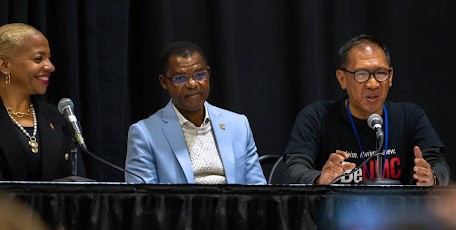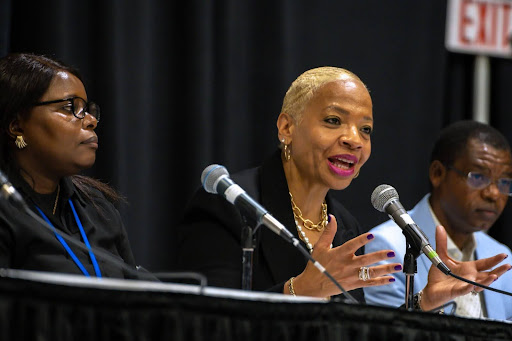A palpable thread of hope continues to weave through the General Conference proceedings as The United Methodist Church took a significant step toward a more equitable global structure. Delegates approved a constitutional amendment for regionalization. This amendment, passed with a vote of 586 to 164, aims to equip each geographic region of the church with equal authority to adapt the Book of Discipline based on localized missional needs.
Historically, such authority was held only by central conferences under the church’s constitution. The amendment passed with a 78% majority (586 to 164 votes), signaling strong support for a more decentralized and culturally sensitive governance model. This approval is preliminary, however. For full ratification, the amendment must now gain at least a two-thirds majority vote from all annual conferences together around the world.
Despite concerns about inadequate representation from central conferences due to travel and visa challenges, the amendment would have passed even if all absent delegates had opposed it.
“It sends a clear signal that the church is ready to embrace a new way toward the next expression of The United Methodist Church,” highlighted Bishop Tracey Smith Malone, the incoming president of the Council of Bishops, in a post-plenary press conference. “We are a beautiful, diverse, international, worldwide church and the regionalization plan reflects what that looks like. Yes, it de-centers the United States, but it also dismantles colonialism – giving us a sense of agency and a sense of autonomy while still keeping us connected in mission as a single body of people called United Methodists.”
Main photo: Bishop Tracey Smith Malone, incoming president of the Council of Bishops, responds to the General Conference regionalization vote at a press conference. James Lee photo

Rev. Jonathan Ulanday, from the East Mindanao Philippines Annual Conference and co-writer of the original Christmas Covenant legislation, shared his perspective: “We aren’t trying to decentralize anybody, but rather to place our Lord Jesus Christ at the center of the table for all of us to sit around with total equity, sharing the gifts and resources that will be offered to each other, so that the spirituality called United Methodism will flourish in different contexts and in different parts of the world.”
Bishop Malone emphasized the way disinformation had made the collaborative work of regionalization difficult, but also that today’s vote is a signal that the truth prevailed. She also expressed the importance of communicating factual information as this amendment moves to the Annual Conference for vote.
“It’s up to all of us. We all need to play our part to dismantle disinformation.” She confirmed that the Council of Bishops would commit to sharing correct information so that the Annual Conferences can make a well-informed vote.
“One of my colleagues told me, ‘We can go home now!’” shared Rev. Ulanday. He had a light-hearted yet poignant moment with a colleague from the Philippines once the amendment passed. The relief after many years of work was evident. “I told him, ‘Not yet. We still have more work to do!’ But for now, I, too, am deeply grateful and full of hope.”
Main photo: Bishop Tracey Smith Malone, incoming president of the Council of Bishops, responds to the General Conference regionalization vote at a press conference. James Lee photo

